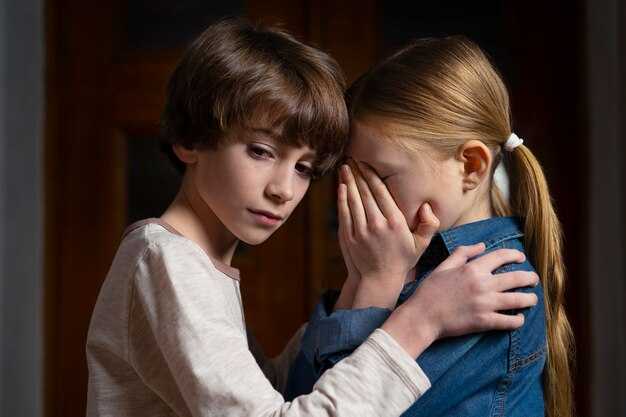It’s heartbreaking when caregivers overlook a child whose need for affection, attention and safety is as vital as eating, breathing and drinking. If you grew up deprived of comfort, you might now, as an adult, settle into relationships that leave you feeling starved — and the cruelest part is the difficulty of letting go. Today’s letter comes from a woman named Lena. She writes: Hello Anna — I’m 46 and have been single for most of my life. Five years ago I fell in love. Okay, I have my little marker here and I’ll note things to revisit on a second pass, but let’s look at Lena’s situation. She describes love at first sight and an intense spiritual bond; after four years he left her without explanation, sending a text. He was someone she could have imagined spending her whole life with. Eleven months later she’s still mourning as if it were yesterday — she feels both emotional and physical pain. She has no children and was never married, though she wanted that. When people ask why, she finds the question a bit hurtful, as if there’s something wrong with her. She tends to answer that she simply never met the right man.
She says love is her deepest wish: to give and receive it, to be in a committed partnership. She repeatedly asks herself why her ex of four years abandoned her — he left one day without words. To understand and prevent this happening again, she plunged into psychology books to uncover what she might have contributed and to learn what she couldn’t yet see about herself. She believes she’s emotionally unstable in some ways — prone to jealousy that she hides by withdrawing, spending long stretches alone. Crowds and cities make her anxious; her high sensitivity drains her and makes withdrawal more likely because too much stimulation exhausts her. Lena supposes her ex may have felt neglected or like she wasn’t reciprocating enough, though she admits that’s conjecture.
Her parents remain married, but in the last five years she realized her mother is emotionally unstable: moody, prone to hurtful language, reactive rather than responsive. Lena never heard the question “How are you feeling?” from her mother. Her father was in the army for her first four years, and both parents worked a great deal. While her mother was physically present, she was emotionally absent. Activities and nature weren’t things her mother enjoyed, so they rarely shared outings. Lena pictures her mother turned away, eyes unfocused and distracted, often saying she’s busy or needs to go do something mundane. With others Lena rarely reacts angrily, she seldom argues — but with her mother things explode: they sometimes scream, slam doors, and Lena feels terrible afterward because those eruptions only happen with her and she finds herself stooping to her mother’s level.
As a child she would withdraw and be lonely. Her father, by contrast, did many things with her — teaching skiing, swimming, mushroom collecting, birdwatching and practical skills — which gave her some warmth. Lena grew up in East Germany before the Wall came down; school was hard and she felt unseen, unheard and unloved. She recognizes that she became almost the opposite of her mother: caring, affectionate, gentle, creative, timid, often lacking courage. In her last relationship, her partner would also pull away at times, sometimes disappearing for weeks or not inviting her to friend events. She responded in kind by withdrawing — as she did as a child — switching off her phone and going alone to the ocean for a week or two because the sea is her lifeline. He once said he felt ghosted by her, which she found ironic because she often felt excluded by him and more anxious as a result.
She hopes this background is enough for a response and practical suggestions. Primarily, she wants to stop reacting to her mother and let go of the anger, knowing her mother is 76 and unlikely to change. She wishes to rise above this dynamic, cease reacting because it sets her back for weeks after each painful argument, and bring a romantic partner into her life so she can experience the fullness of love and a lasting commitment. She wants to be the best version of herself: not jealous, not afraid, not chronically anxious, someone with healthy self-esteem who can name her needs quickly — especially when she feels the urge to withdraw or the rise of jealousy — so a partner can understand and help navigate the relationship rather than her fleeing the room or leaving on holiday. Her greatest dread, a breakup, came true. She still longs for a child and marriage, but wonders whether those goals matter less than simply finding and sharing love.
Because she’s highly sensitive, she doesn’t use dating apps after negative experiences. She lives rurally, surrounded by nature, works entirely online and has no local social circle. Though she made strong friendships while traveling the world, six years ago she returned home and now has no friends nearby. During the four-year relationship she focused solely on the partnership — partly because she loves being alone and often chooses solitude, and partly because sensitivity drove her to spend free time alone in nature, doing sports or yoga. Now that solitude leaves her no starting point for meeting new people. She admits she can be disorganized and can freeze when deciding what to do during the day. The relationship and life are complicated, and she’s unsure she selected the right details to convey what matters — but she hopes this is useful. Many thanks, Anna; she appreciates the channel and your work.
What follows is a response to Lena. What a moving letter — truly lovely. There’s a sense she’s very near to discovering what she wants. She gathered pieces of her life, stitching together a kind of mosaic, and conveyed it beautifully. At 46, after a profoundly deep four-year relationship that ended abruptly, some key themes stand out. First, there’s a likelihood she’s idealizing this man and the relationship. That doesn’t mean she’s unreasonable; her childhood wounds are visible and she’s currently fragile. Choosing life in nature and avoiding people to manage triggers is common for someone with complex PTSD; her childhood descriptions — a mother who seemed vacant and inattentive — fit that pattern. It’s fortunate her father was affectionate and gave her a love of nature, so she wasn’t completely deprived. Still, she remains entangled in trying to repair or heal the relationship with her mother. With traumatic parents, the reconciliation many hope for rarely plays out like it does on television: some people have the capacity to introspect and change, but others, like Lena’s mother, may not. Healing can still occur without that parental turnaround. Lena was robbed of a nurturing childhood, but she also received enough warmth to grow into the extraordinary person she is now — and that is something she can build on.
Her desire for partnership and possibly children is fully supported; those are attainable aims. However, avoiding social contact because it’s overstimulating may now be counterproductive. The relationship likely showed many warning signs. People don’t normally ghost someone after four years without prior indications of unavailability; there were probably clues that he wasn’t prepared to commit. He didn’t propose, didn’t marry her, didn’t have children with her — those were signals. A traumatized inner part of her may have accepted a partial, compromised version of love because she learned to adapt to less-than-satisfying caregiving as a child. Examples like being excluded from his birthday gathering are clear red flags: not the behavior of someone who loves and prioritizes you. When a connection is described as “very spiritual,” sometimes that becomes a way to romanticize what’s missing in everyday, concrete partnership — like sharing life events and practical commitment. That romanticizing can mask unacceptable behavior and allow people to fit themselves to inadequate situations because they’ve been conditioned to do so.
If Lena had expressed her needs early on — within the first months — she might have discovered whether he could meet them. If he couldn’t, better to know then than later. Communication gives both people the chance to act honestly. Ghosting after four years is abusive and leaves unresolved questions; someone who truly cares, even if they choose to end the relationship, would usually provide enough information to allow the other person to process and grieve. So it’s healthy to let go of idealizing him: this was not a loving, mature ending.
Her sensitivity and introversion—coupled with rural living—mirror a retreat away from people, similar to the pandemic-era withdrawal. But using a single relationship as your whole world often backfires. When loneliness meets someone attractive, it’s easy to overlook red flags because the promise of companionship feels like finally having a home. Having friends and a broader support system protects against this mistake. Lena mentioned friendships made while traveling; reconnecting with those people and opening to making new friends is important. People rusty at socializing need to take it slowly — small, steady steps. For that, consider structured programs that help rebuild connection skills: a thirty-day “connection boot camp” that eases you back into social life with daily small actions can be useful. Details on where to find it are in the description under related videos and on the course hub at the author’s site. Many trauma survivors avoid people to limit triggers and prevent dysregulation, which is understandable and protective in the short term but can lead to isolation over time.
A dating course can also help clarify what you want so you don’t enter a relationship based on vague hope that commitment will organically appear later. You deserve to state your needs early on; if a prospective partner is unwilling to meet those basic criteria, that’s a clear sign they’re not right for a long-term partnership. The final practical takeaway offered is a checklist of red flags to watch for when you begin meeting people again. When loneliness is long-standing, the desire for a companion can blind you to warning signs. Keeping a list of red flags handy in the early stages of connection helps you evaluate new people more clearly. There’s a free PDF of that checklist available for download, and that resource can be a practical companion as you step back into dating. Wishing you well on that journey — and a reminder that you deserve clear, caring communication and a partnership that meets you on both the spiritual and everyday levels. [Music]


 Childhood Neglect And The Attraction to Partners Who Don’t Care">
Childhood Neglect And The Attraction to Partners Who Don’t Care">

 The 5 Stages of a Dismissive Avoidant’s Mind When You Go Silent">
The 5 Stages of a Dismissive Avoidant’s Mind When You Go Silent">
 What To Do When Someone Makes You Feel Creeped Out">
What To Do When Someone Makes You Feel Creeped Out">
 Avoidants Texted You After Silence? This Brutal Reply Will Destroy Them | Jordan Peterson">
Avoidants Texted You After Silence? This Brutal Reply Will Destroy Them | Jordan Peterson">
 Why does the Anxious partner have to sacrifice for the Avoidant?">
Why does the Anxious partner have to sacrifice for the Avoidant?">
 Anxious Attachment leads to Heartbreak until you do this…">
Anxious Attachment leads to Heartbreak until you do this…">
 The Hidden TRUTH: Why Avoidants Disrespect You – How to Pass Their TEST | Avoidant Attachment Style">
The Hidden TRUTH: Why Avoidants Disrespect You – How to Pass Their TEST | Avoidant Attachment Style">
 An Interview With Dr. James Pennebaker">
An Interview With Dr. James Pennebaker">
 Try These Emergency Measures to Re-Regulate Anywhere">
Try These Emergency Measures to Re-Regulate Anywhere">
 Stop Helping your Wife.">
Stop Helping your Wife.">
 Harsh Signals (You Don’t Realize You’re Sending) Push Men Away">
Harsh Signals (You Don’t Realize You’re Sending) Push Men Away">